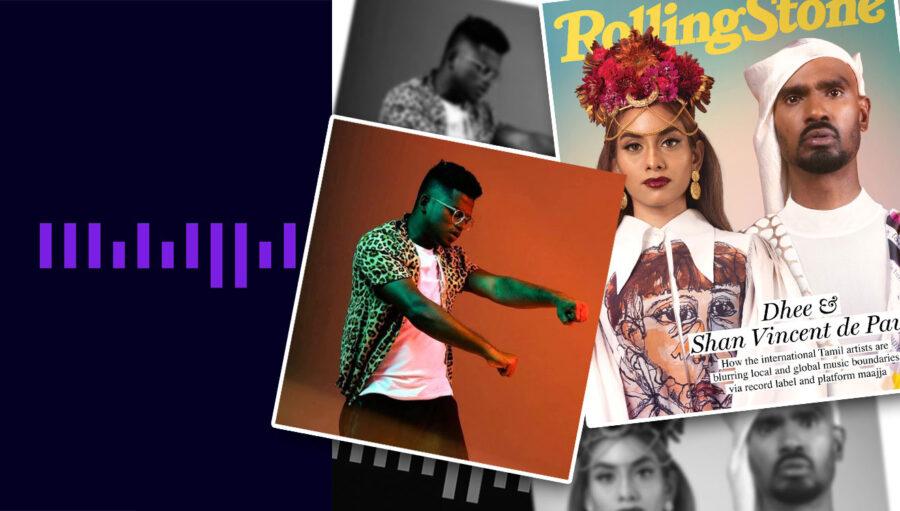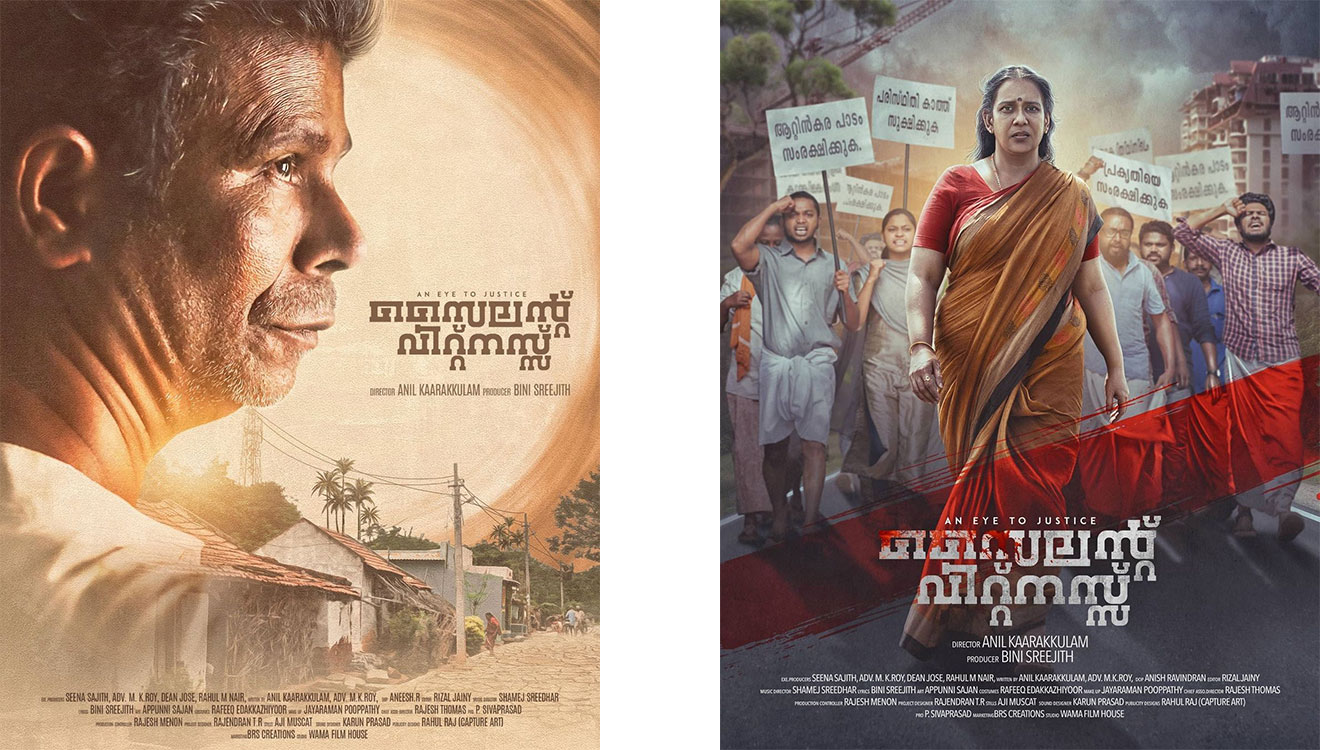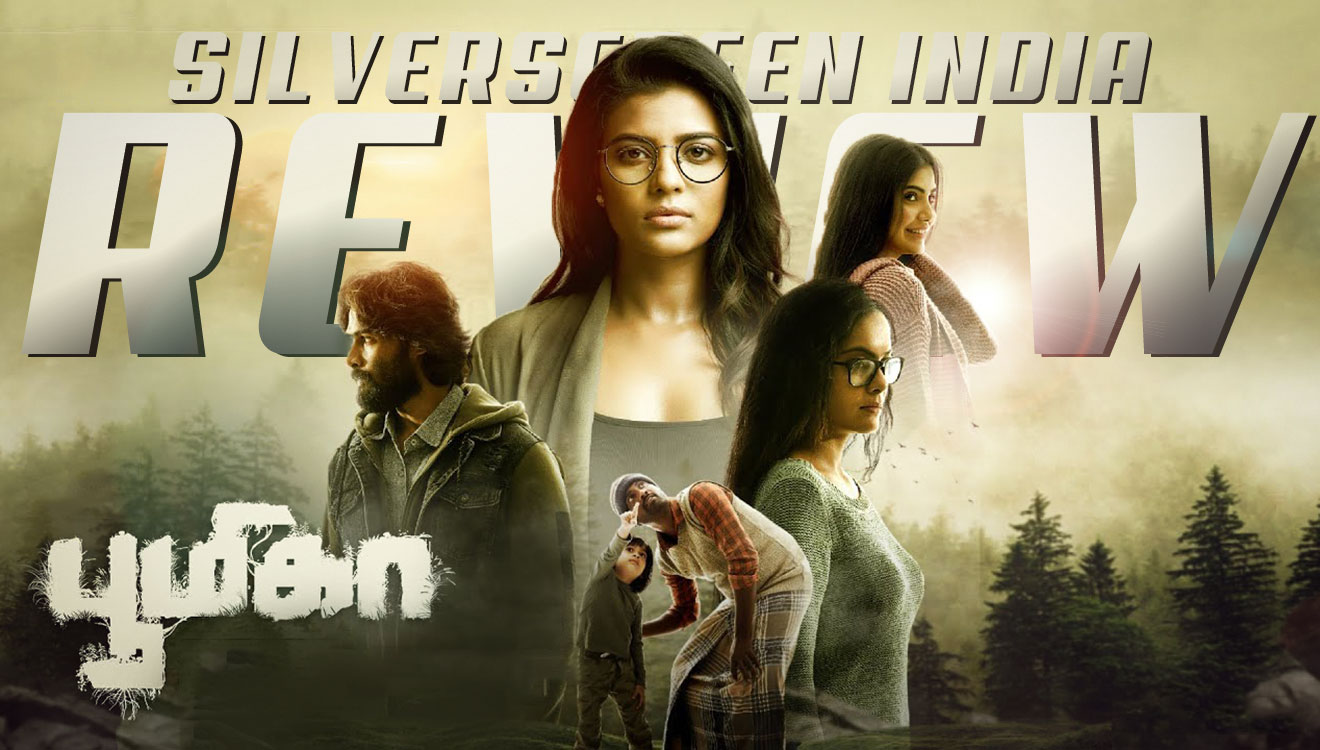On August 20, Rolling Stone India released its August issue cover, featuring singers Dhee and Shan Vincent de Paul. In its tweet sharing the cover story, the publication referred to Dhee and Shan as “triumphant South Asian artists” who have been at the “front of erasing border lines with songs like Enjoy Enjaami and Neeye Oli, respectively, released via the platform and label maajja.”
This triggered a massive backlash on social media for sidelining lyricist and rapper Arivu despite his contribution to both songs. Following this, on August 27, the magazine issued a digital cover solely featuring Arivu.
Silverscreen India presents you with this explainer of the various angles of the controversy. We also spoke to authors, activists and researchers to understand the caste politics and business decisions at play.
What was the controversy?
The first point of contention was that Arivu, the independent singer and rapper who wrote the lyrics of Enjoy Enjaami and performed it with Dhee, and co-wrote the lyrics of Neeye Oli with Shan, was not featured in the cover photo nor was he mentioned in the tweet.
Also, while the cover story features multiple quotes from both Dhee and Shan and is peppered with stills from their photo shoot, it includes only one quote from Arivu and no photographs of the rapper.
It is important to note that the hugely-successful Enjoy Enjaami, which was released in March and became a milestone in Tamil indie music, is based on Arivu’s grandmother, Valliammal. It is produced by music composer Santhosh Narayanan, who also composed Neeya Oli.
Reactions it evoked:
Filmmaker Pa Ranjith, a prominent Dalit voice in Tamil cinema and director of the film Sarpatta Parambarai that featured Neeye Oli, was among the first to speak out against Arivu’s exclusion from the cover.
“Arivu, the lyricist of Neeya Oli and singer as well as lyricist of Enjoy Enjaami has once again been invisiblised. Rolling Stone India and maajja, is it so difficult to understand that the lyrics of both songs challenges this erasure of public acknowledgment?” he questioned.
It is notable that Enjoy Enjaami includes lines that talk about someone not getting credit for their work. Several on social media quoted these lines when expressing their disappointment with the sidelining of Arivu.
Ranjith’s use of “once again” is also pivotal. In June, when DJ Snake remixed Enjoy Enjaami and it became the first Tamil indie song to be featured on Times Square in New York, the billboard failed to feature Arivu and only showcased Dhee and DJ Snake. This drew the ire of many on social media.
Following Ranjith, lyricist CS Amudhan, singer Chinmayi Sripada, filmmaker Leena Manimekalai too spoke out against the exclusion of Arivu from the cover of Rolling Stone.
However, Arivu himself has not commented thus far on the issue. Salma, poet, writer, and State Deputy Secretary of the DMK Women’s Wing, says one of the reasons he has not publicly addressed the issue could be the potential loss of opportunities in the future. “This is because the upper-caste communities occupy the higher ranks in the business,” she explains.
Salma views the sidelining of Arivu as the theft of an individual artist’s efforts. “In the case of Enjoy Enjaami, the lyrics are pivotal. Arivu’s song is completely from a Dalit’s voice and to take that credit from him, is a form of theft and is unacceptable. This has been the history of the community – either they are oppressed or their voice is suppressed. If Pa Ranjith had not spoken out, many would not have known about this issue.”
Digital cover, a cover-up?
Salma feels the digital cover featuring Arivu is simply an act of appeasement. “After the backlash, they put out a new cover, but it is digital, which is inferior compared to the print edition,” she says.
Activist/writer Shalin Maria Lawrence, who first brought attention to the fact that Arivu was not paid for Enjoy Enjaami, echoes Salma’s thoughts on the digital cover. “The digital cover that they released recently is a hasty cover-up for their blunder after the backlash on social media. A digital cover does not carry the same value as print. This shows that they put in very little effort to appease the discontent,” she says, adding that Arivu was “clearly neglected and sidelined.”
Caste politics and the music market:
Stalin Rajangam, an independent researcher and writer on caste and pop culture, says just as rap served as a voice for the oppressed Black community in the West, here in India, Dalit voices have slowly started gaining attention in arts, literature and research. “Dalit voices are new to our society, as are the things they talk about, and they are grabbing attention in global platforms. Those who want to stay with this trend, want to collaborate with these voices, even if they are not Dalit themselves. While such collaborations are healthy, the problem starts when the non-Dalit collaborator hogs the attention,” he observes.
Salma concurs. “To voice for Dalits is not wrong, but to take their place is. Collaborations are healthy, but the suppression of Dalit identity such as has happened here must be called out. Only when Dalits speak for themselves, will it be truly effective, as is evident from Mari Selvaraj and Pa Ranjith’s films. There is a need for Dalits to represent themselves, and create their own platforms,” she states.
Recognition is important adds Shalin. She points out that Dalit artists throughout history have always been erased and their work appropriated. “Their art either gets discriminated against or appropriated. We’ve seen promising talents vanish due to this. The Dalits of this land have overcome so many challenges over three thousand years to be whether they are today as a community,” she says.
Issues over song credits for Enjoy Enjaami:
Another criticism that emerged was that Arivu is not credited as the lyricist for the song Enjoy Enjaami in the official video’s YouTube description. There was also outrage over the artist listing saying “Dhee featuring Arivu” as people felt that Dhee being credited as the main artist amounted to the sidelining of Arivu.

In an exclusive chat with Silverscreen India, Noel Kirthiraj, CEO and co-founder of maajja, had said that the reason for the artist credits naming Dhee ahead of Arivu goes back to the origin of song. “We asked Dhee to do a song with Santhosh Narayanan as producer. Dhee wanted Arivu to be part of the song. So it was Dhee’s song and she invited Arivu to collaborate, and the credits reflect that. It all comes down to who is the artist that initiated the project – in this case, it was Dhee.”
He also explained that the practice of specifying the lyricist is an outdated one that stems from cinema and music being intertwined in India. In the case of independent music, the lyricist is part of the song as the performing artist, as was the case with Enjoy Enjaami, he had said.
Stalin is not satisfied with the explanation about the song’s origin. The inside information on the song’s origin is not known to outsiders, he says. “I don’t relate Dhee’s voice to the oppressed, but Arivu’s. Enjoy Enjaami is a song about his community.”
For Shalin too the song is about Arivu’s politics, performance and pain. She says it will strike anyone that it is a song from a landless person whose community has been oppressed for ages. “The song talks about the indigenous people of this land, their mutual co-existence with nature, and also their plight, poverty and oppression through caste. It is solely Arivu’s single. He has written the lyrics, performed it and also contributed to the composition of the oppari bit. While we cannot deny Dhee’s contribution and that her catchy voice was also one of the primary reasons the song went viral, she has sung a lot of songs in the past – what stood out this time were the lyrics,” Shalin stresses.
Arivu being neither given credit for the lyrics nor promoted internationally, and the song being recognised as a “Dhee song,” she says, is “nothing but appropriation.”
How can healthy collaborations take place?
While all advocate for collaborations to take place sans caste barriers, there have to be some ground rules to avoid the suppression of the oppressed voices and the appropriation of their work. Salma says the privileged should give space to the oppressed and credit them properly when collaborating with them “because they (the privileged castes) have had the power so far.”
“All you need is a good heart,” she adds and points to veteran composer Ilayaraja who is considered a legend in the field of music. “His caste is not noted, because he has reached a peak. In the case of Arivu, he is a budding artist who is bringing out the voice of the oppressed and should therefore be given due space,” she says.
Recommended
Stalin also says that when non-Dalits collaborate with Dalits, the former should yield the spotlight to the latter who are not yet part of the mainstream. “Dalits should be given the spotlight since they have not seen it so far. In the case of Arivu, he has done equal work and yet the stage was denied,” he notes.
Shalin adds that there is a need for more representation and participation of oppressed communities in art. Echoing Salma’s call for the creation of more platforms for Dalit voices, she says, “When Pa Ranjith started Neelam Productions, he introduced a lot of new directors like Mari Selvaraj who brought uncompromised, original Dalit-Bahujan content to cinema. I’ve heard that there are more than 10 new Bahujan directors he will be introducing soon. We need more brands and platforms like Neelam.”
“Also, Dalit artists need the proper marketing channels, social media presence and PR teams to market their content appropriately,” Shalin opines.
Salma, Shalin and Stalin all agree that artists from privileged backgrounds should give space to the oppressed and give them ownership of their own content.



